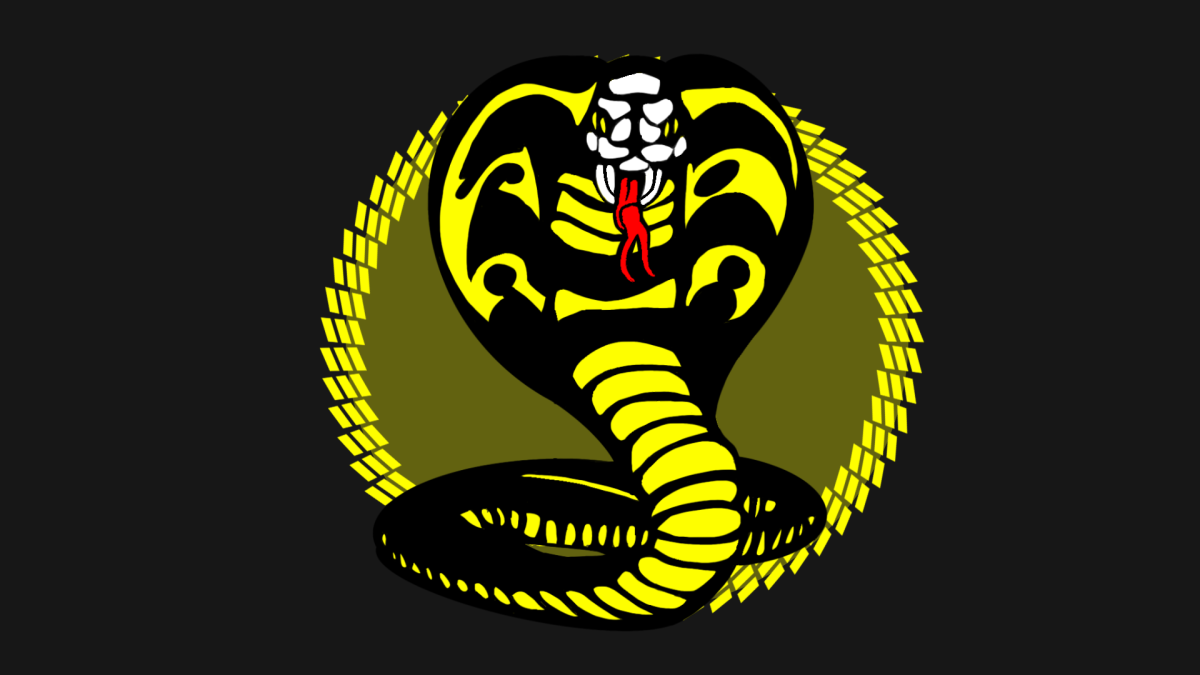Earlier this month, one of my most anticipated movies of the year, “Mickey 17,” hit theaters to generally positive responses from critics and audiences.
“Mickey 17” reached number one at the box office on its opening day, beating Thursday’s top movie “Captain America: Brave New World.”
Facing gambling debts on Earth, Mickey Barnes (Robert Pattinson) signs up to go on a planet colonization mission as an “expendable.” Expendables are human test subjects who are killed in scientific experiments and subsequently reprinted to be used for more tests. After nearly dying, the 17th Mickey returns to find an 18th in his bed.
Human printing is only supposed to be used on dead people. When a living person is cloned, meaning there are two existing copies, it’s known as a case of multiples and they’re both killed.
Much like his previous film “Parasite,” Bong Joon-Ho’s “Mickey 17” is a direct commentary on class. Joon-Ho told the New York Times, “It’s a story about working-class people.”
The film is an adaptation of the 2022 novel, “Mickey7” by Edward Ashton, which producer Jeremy Kleiner sent to Joon-Ho.
“Mickey 17” is a well-constructed sci-fi comedy that finds a good mix between its satire and dramatic moments.
Pattinson gives another truly amazing performance, especially when it’s considered that he plays two variations on the same character.
He plays both Mickeys so well that you can differentiate them by how they stand.
The main Mickey, the titular 17, is timid and non-confrontational. He’s repeatedly pushed into situations he doesn’t want to be in, manipulated by his friends, and taken advantage of.
On the other extreme, Mickey 18 is hot-headed and aggressive. He tries to kill several people on a whim and starkly contrasts 17’s demeanor.
The two grow around each other through the film, learning the best the other has to offer. Mickey 17’s heroic journey requires the push that 18 provides.
Pattinson’s performance demonstrates his love for acting. The care for his craft is so evident in every little thing he does. If his face wasn’t so recognizable, I genuinely don’t know that I would’ve realized it was him.
His voice is so dramatically different than I’m used to hearing. He takes on this higher nasally voice for 17, which is vastly different from his natural voice.
While Pattinson is giving a performance for the ages, he wasn’t the only strong point of “Mickey 17.”
On my first watch of “Mickey 17,” I was often frustrated by the writing of Mickey’s love interest, Nasha (Naomi Ackie), and attempted home-wrecker Kai (Anamaria Vartolomei). I thought they were written inconsistently and genuinely detracted from the movie’s story.
My key frustration with the movie came when Nasha discovered the two Mickeys. She didn’t react in a way that I thought made sense for her character. She didn’t show concern or fear, and that made me angry.
I didn’t mind her becoming an unlikable character, but what bothered me was that she just suddenly starts caring about Mickey in the movie’s last act. In my eyes, nothing triggered the change.
Kai seemed to flip-flop between good person and bad person depending on the needs of the story, going from caring to using for seemingly no reason.
In a flashback, we see that Kai is interested in Mickey, but he doesn’t reciprocate. Later, we see her have a moment with 17 where she acknowledges his humanity, something only Nasha has done to this point.
It’s a cute moment between the characters that I initially thought made her more interesting.
Then, upon discovering there are two Mickeys, she tries to extort Nasha into letting her have Mickey 17. She starts to treat him like an object, something to be traded or bartered.
I was frustrated by these writing choices after watching it the first time. It felt disjointed to me.
After watching the movie a second time, I have to say I disagree with myself.
The film’s characters actually flow quite well with each other. Their characters’ motivations are clearly defined, and anything that might feel out of character is explained by in-universe circumstances.
Nasha seems weirdly irresponsible to you? Well, maybe it’s because she’s high. Kai’s character feel inconsistent? Have you considered that she watched her best friend die recently? Because that might explain it.
I understand my original frustrations with the movie’s secondary characters, but I just don’t think I was paying enough attention. It was my fault, not the movie’s.
The antagonists of “Mickey 17” add so much texture to the film and consistently elevate the movie’s already strong writing.
Timo (Steven Yeun) is Mickey’s deadbeat friend from Earth. He’s an opportunistic grifter who repeatedly takes advantage of the oblivious Mickey to get ahead. Yeun is an actor with a lot of screen presence and makes the most of a relatively small role.
Mark Ruffalo plays Kenneth Marshall, a failed politician and the eccentric leader of the expedition to a new planet, Niflheim. While watching the movie, I assumed Marshall was an analog for Trump, but according to Joon-Ho, that’s not the case.
The director told Entertainment Weekly that Marshall is a mix of many politicians and dictators seen throughout history.
Despite this, Marshall reads as such a Trump analog that I could easily describe them the same way. A television show host and politician with strange hair and a unique vocal cadence whose fanatical supporters wear red hats could so easily apply to either of them.
The most interesting part of this political allegory is how much of it seems to be an accidental parody. Since filming for “Mickey 17” wrapped in January of 2023, many comparisons that I drew during the movie were unintentional by the filmmakers.
Marshall being grazed by a bullet seemed like an obvious reference to the assassination attempt on Trump in Pennsylvania last year, but that didn’t happen until the movie was well into the editing process. It’s a reference that the filmmakers couldn’t have known they would be making.
However, Marshall doesn’t stand at the dawn of a new era of humankind alone.
Marshall’s wife Ylfa (Toni Collette) and his highly religious assistant Preston (Daniel Henshall) manipulate him constantly, playing on his ego to use him for their gain.
They work as well-placed narrative tools to demonstrate the cracks in Marshall’s facade.
Not only is he an oppressive and selfish leader, shown by his extravagant life that starkly contrasts the life of those on the ship, but he’s not even smart enough to properly be an evil dictator without the whispers of a bootlicking fanatic and a manipulator in his ear.
Marshall is used well to illustrate Joon-Ho’s class commentary. On the journey to Niflheim, the ship’s crew is on a strict calorie limit, but Marshall and Ylfa eat extravagant dinners.
Allotted calories are even used as a punishment and a bargaining chip. Mickey messes up: boom – allotted calories are halved. Need to bribe someone? Use your food.
Food, something we can all agree we need to live, is used as a strange currency. That sounds wildly dystopian to me.
The living spaces for the crew are drab and colorless. The whole ship has this oppressively gray atmosphere that makes it feel completely lifeless. On the other hand, Marshall and Ylfa’s living quarters almost look like a parody of wealth.
Ylfa also has this strange obsession with sauce. She makes her own sauces and brings them up constantly. It’s not super related, but I felt you guys should know that.
The ship’s lead scientist, Arkady (Cameron Britton), uses Mickey as an object for his curiosities. He puts all of the Mickeys through such terribly inhumane experiments while never considering their humanity.
While he’s never presented as this outright antagonist, Arkady is this looming presence over the Mickeys throughout the whole movie. He could pop up at any moment to monitor the results of a surprise experiment.
He’s this strange representation of people who don’t directly cause the problems plaguing the working class but take advantage of them.
Mickey’s not an expendable because of Arkady, but Arkady uses him as a ragdoll. He’s like those kids who sit in the grass trying to melt bugs with a magnifying glass.
On Niflheim, there is a native population that Ylfa calls “Creepers.” Marshall immediately declares that they must be destroyed because they thirst for human blood.
The funny thing about that is they don’t at all.
Not only does the movie strongly tackle the class issue, but it also has an interesting discussion about colonization and xenophobia.
Creepers are the native inhabitants of this planet, but Marshall immediately labels them the enemy of mankind. He says he wants a “pure” colony. The word pure is a recurring part of the film and is used by all of the worst people.
Marshall also repeatedly calls the creepers “aliens.” Which, I must point out, is an insane thing to say as the would-be colonizer of this planet.
They’re not the aliens. Humans are the aliens. But, even when it’s pointed out to Marshall, that never deters him from his goal. He couldn’t be bothered to ever consider how his goals would affect other people or beings because they’re inconsequential to him.
Marshall serves as a well-constructed allegory for the upper class. He’s an uncaring, uncurious, uptight and morally inconsistent worm of a man whose concerns lie only in his own interests.
There’s one possible failure I see with the movie’s colonization allegory: it’s a story seen entirely through the eyes of the colonizers. It never shows us the side of the colonized. We never even learn what their names are.
There’s a key issue with this specific critique – does that story fit the scope of the movie?
When writing a script, the writer has to deeply consider the scope of their story. If something doesn’t fit into the script, whether it’s a good or bad addition, it shouldn’t be in there.
There’s a reason “Oppenheimer” doesn’t deal with the Japanese perspective on the nuclear bomb. That reason being it’s a movie about J. Robert Oppenheimer, not about Japan. So, should the movie about Mickey Barnes shift focus to tell a more complete colonization story?
No, I don’t think so. While shifting focus from Mickey might help one specific aspect of the movie, it would hurt the film’s overall themes and story. “Mickey 17” is about Mickey Barnes, and I think it’s really good at doing that.
Overall, I think “Mickey 17” is a solid film. While some of the movie’s framework feels shoddy, it has Pattinson’s performance and Joon-Ho’s beautiful direction.
Pattinson’s performance alone is worth the price of admission.









